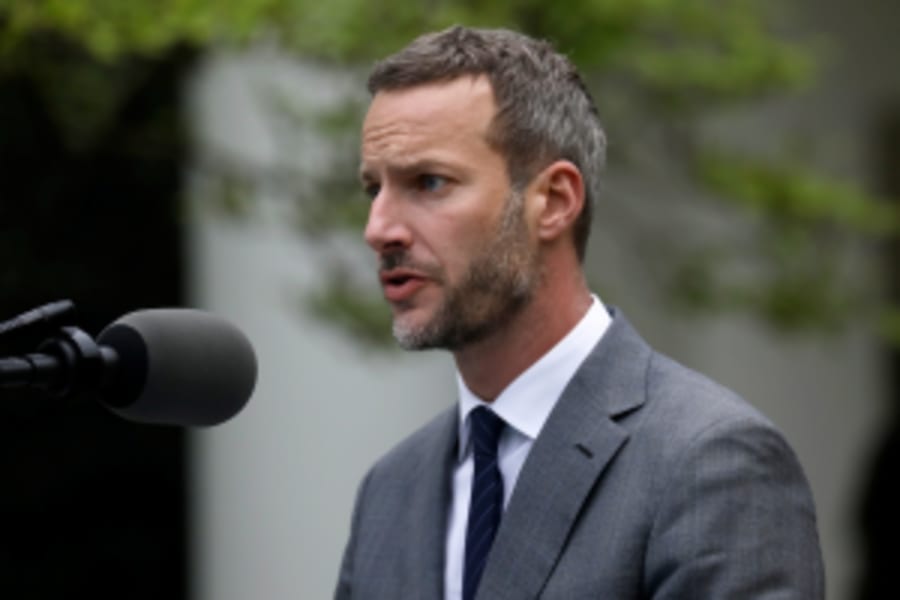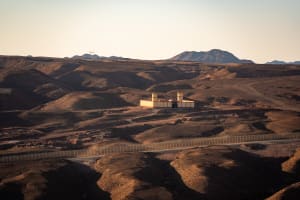In major policy reversal, US withdraws support for EastMed pipeline from Israel to Europe
“Why would we build a fossil fuel pipeline between the EastMed and Europe when our entire policy is to support new technology,” said one senior US official

In a complete policy reversal, the U.S. has said that it no longer supports the construction of the 1,900 kilometers subsea natural gas pipeline that would carry natural gas from Israel to Europe, the Jerusalem Post reported Tuesday.
The pipeline was scheduled for completion by 2025 at an estimated cost of 6 billion euros and was projected to have the capability to transfer up to 12 billion cubic meters of natural gas a year from reserves in the Eastern Mediterranean Sea to Greece and from there to Italy and other European countries.
The withdrawal of support by the Biden administration was not communicated officially, but Israel, Greece and Cyprus were informed of the change in policy in recent weeks, according to reports.
“The American side expressed to the Greek side reservations as to the rationale of the EastMed pipeline, (and) raised issues of its economic viability and environmental (issues),” one unnamed source said, according to Reuters.
According to the Greek news outlet Kathimerini, U.S. diplomatic sources expressed reservations both regarding the financial viability of the EastMed pipeline and that Washington preferred to support energy projects which were more ”green-friendly,” with the U.S. instead proposing the use of interconnected power cables.
“Why would we build a fossil fuel pipeline between the EastMed and Europe when our entire policy is to support new technology... and new investments in going green and in going clean?” State Department Senior Advisor for Energy Security Amos Hochstein reportedly said about the EastMed pipeline even before his appointment to his current position. “By the time this pipeline is built we will have spent billions of taxpayer money on something that is obsolete – not only obsolete but against our collective interest between the U.S. and Europe…This project probably will not happen because it’s too complicated, too expensive and too late in the arch of history.”
The EastMed project represents an option for Europe to increase its energy security and reduce its dependence on Russian gasline. It is estimated that Europe receives 40% of its gas supply from Russia.
“We are going to continue to work with Israel, Greece and other interested parties to ensure that the infrastructure of the EastMed pipeline will be developed,” said then-Energy Secretary Dan Brouillette. “There is still an enormous amount of interest both from private industry and from governments of the region to see that infrastructure developed and to be developed as quickly as we can possibly do it.”
The EastMed pipeline agreement was signed by Israel, Cyprus and Greece at an official ceremony only two years ago, in January 2020, with heavy backing from the United States during the Trump administration.
“The agreement is a welcome development. The pipeline should be seen as one option of tapping EastMed gas supplies for the EU alongside shipping it to the EU by tankers in the form of LNG. It’s important to explore further the costs and benefits of both main options,” an EU spokesperson said at the time of the signing of the agreement. ”Diversification of gas supplies is important for the EU’s energy security, and gas supplies from the Eastern Mediterranean contribute to this. In this context, the EastMed pipeline is one option to bring that gas to the continent.”
Whether the U.S. reversal means that the project will be dropped remains to be seen, however, and is not necessarily a given.
“Any decision will obviously take into account the project’s financial viability as determined by the market,” Greek sources told Kathimerini.
Cyprus has reportedly been “alarmed” by the U.S. shift, as it views the EastMed gas pipeline as a politically important project.
Israeli government officials have not yet commented on the policy reversal.

The All Israel News Staff is a team of journalists in Israel.













